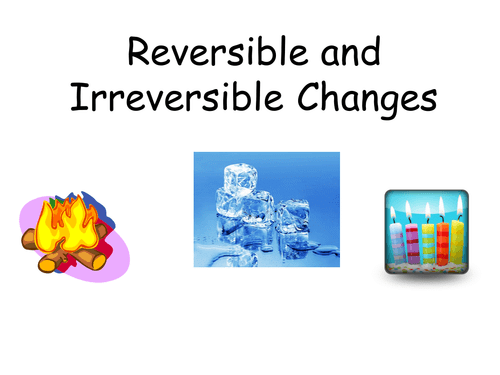Class 5 Exam > Class 5 Notes > Year 5 Science > Chemical reactions and reversible changes
Chemical reactions and reversible changes | Year 5 Science - Class 5 PDF Download
Overview of Chemical Reactions
- A chemical reaction leads to the formation of new materials, often resulting in irreversible changes.
- In a chemical reaction, new substances are always created, and sometimes these new substances are beneficial to us.
Examples of Irreversible Changes
- Heating: Heating substances can bring about irreversible changes. For instance, when a raw egg is heated to cook it, the cooked egg cannot revert to its raw state.
- Mixing: Combining substances can result in an irreversible change. For example, when vinegar and bicarbonate of soda are mixed, the resulting reaction produces carbon dioxide bubbles. The resultant mixture of bubbles and liquid cannot be transformed back into vinegar and bicarbonate of soda.
- Burning: Burning exemplifies an irreversible change. When wood is burned, it produces ash and smoke. The ash and smoke cannot be converted back into wood.

Examples of reversible changes
- A reversible change refers to a change that can be undone or reversed. Examples of reversible changes include:
- Dissolving: Sugar dissolving in water.
- Melting: Ice melting into water.
- Freezing: Water freezing into ice.
- Evaporation: Water evaporating into vapor.
- Mixing: Mixing salt in water
- If you can retrieve the original substances after a reaction, it signifies a reversible reaction. For instance, water can be frozen to form ice, but upon heating, the ice melts back into water.
- A reversible change may alter the appearance or texture of a material and sometimes results in the formation of new substances.
Question for Chemical reactions and reversible changesTry yourself: Which of the following is an example of a reversible change?View Solution
The document Chemical reactions and reversible changes | Year 5 Science - Class 5 is a part of the Class 5 Course Year 5 Science.
All you need of Class 5 at this link: Class 5
|
19 videos|32 docs|12 tests
|
FAQs on Chemical reactions and reversible changes - Year 5 Science - Class 5
| 1. What are chemical reactions? |  |
Ans. Chemical reactions are processes in which one or more substances are converted into different substances with different properties. These reactions involve the breaking and forming of chemical bonds.
| 2. What are reversible changes? |  |
Ans. Reversible changes are changes that can be undone or reversed. In the context of chemical reactions, reversible changes refer to reactions that can proceed in both the forward and reverse directions.
| 3. How can you tell if a chemical reaction has occurred? |  |
Ans. Some common signs of a chemical reaction include the formation of a precipitate, a color change, the release of gas, or a change in temperature. These indicators can help you determine if a chemical reaction has taken place.
| 4. What factors can affect the rate of a chemical reaction? |  |
Ans. Factors such as temperature, concentration of reactants, surface area, and the presence of catalysts can all influence the rate of a chemical reaction. Higher temperatures, increased concentration of reactants, greater surface area, and the use of catalysts can all speed up a reaction.
| 5. Can all chemical reactions be reversed? |  |
Ans. Not all chemical reactions can be easily reversed. Some reactions are irreversible, meaning that the products formed cannot be converted back into the original reactants.
Related Searches















